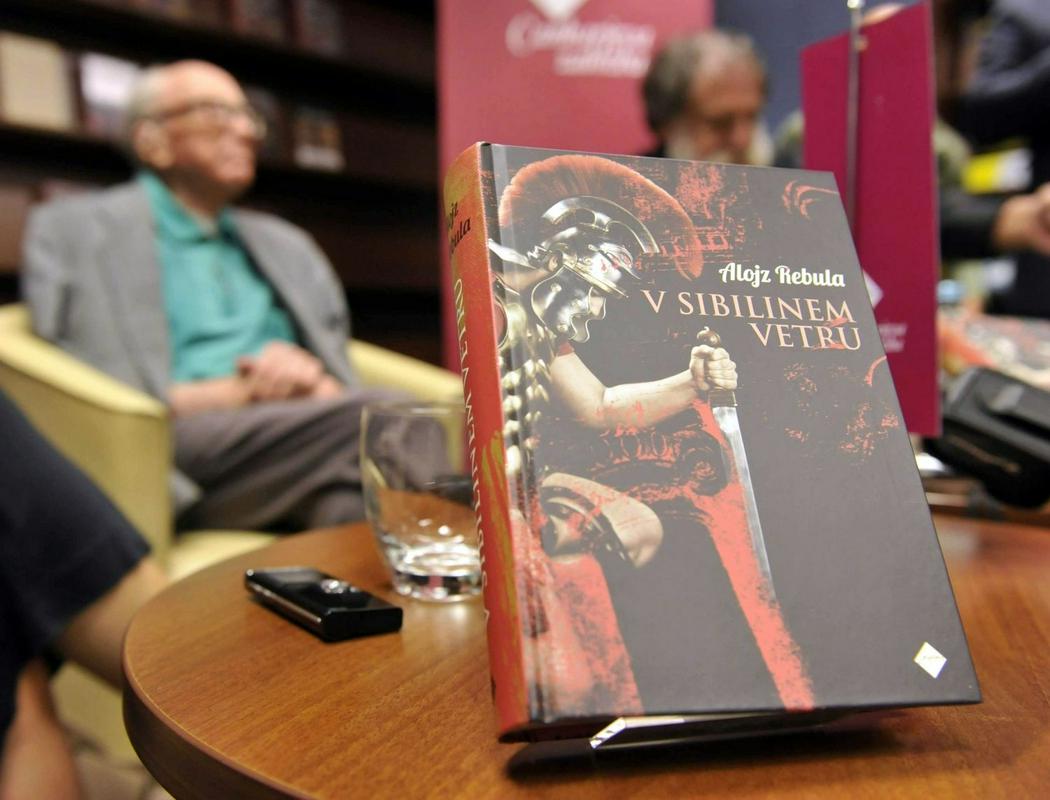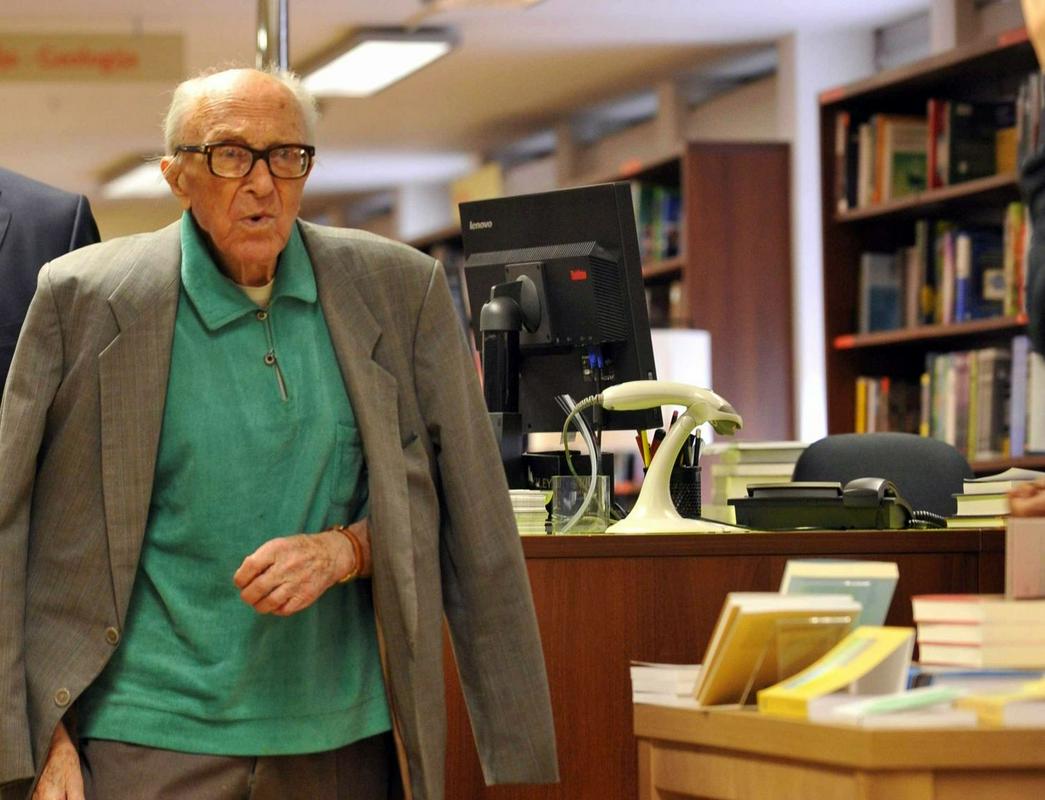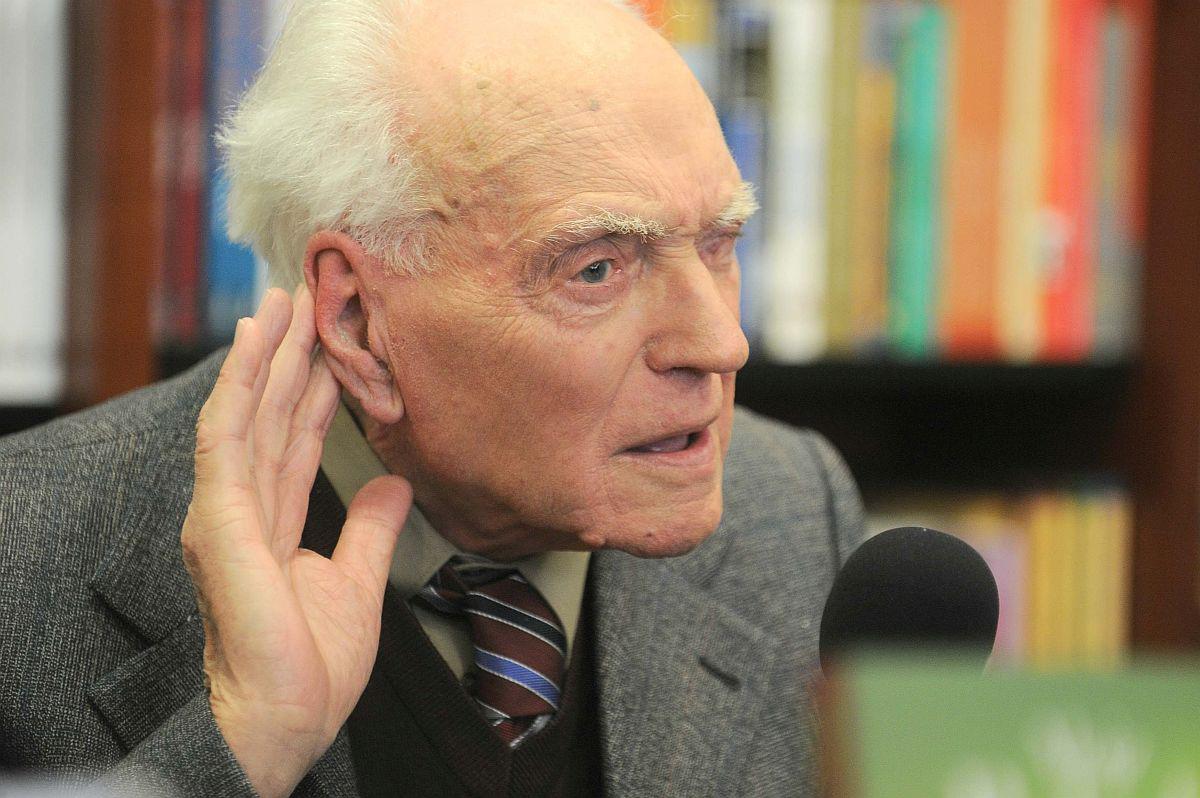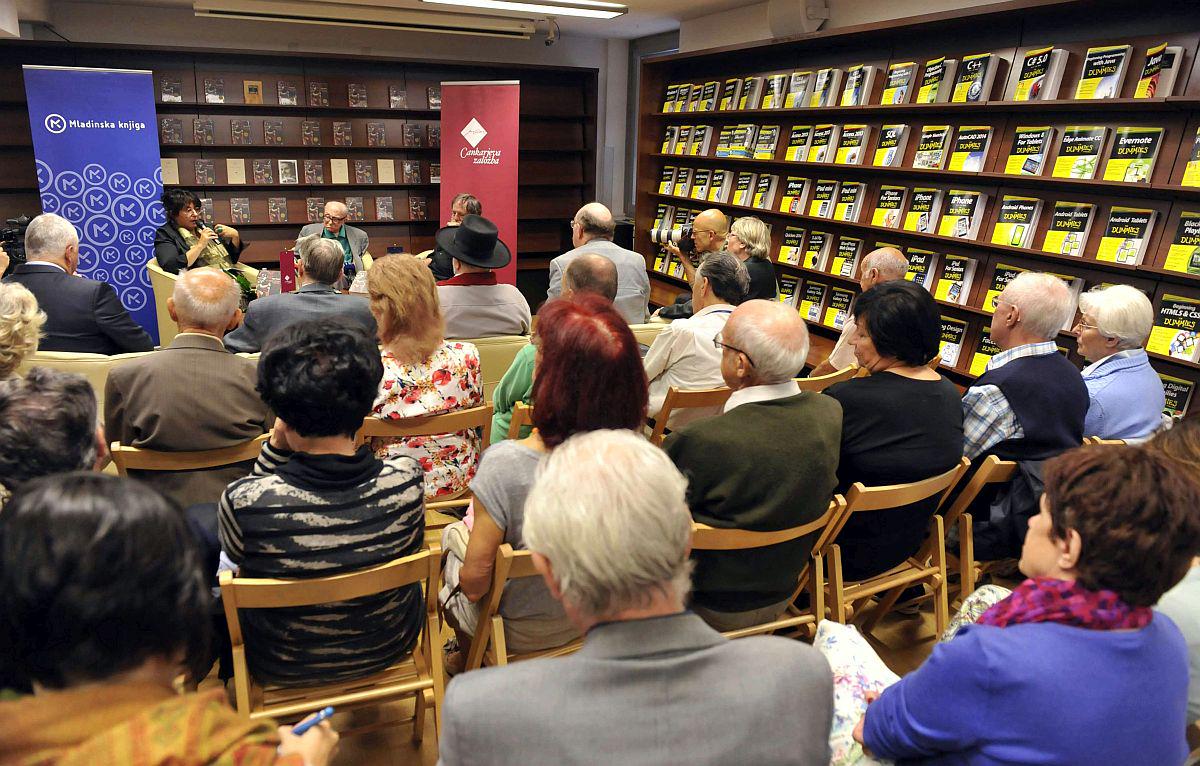
Alojz Rebula unfortunately refused a joint appearance, explaining we’re separated by our world views, the Liberation Front, the People’s Liberation Army and the revolution. He also says that nowadays Kocbek, who in my opinion remains a great spiritual and cultural phenomenon, is also politically bankrupt and unacceptable for a catholic. Nonetheless, we remain friends, of course.


We still act in a Slovenian manner. Every recognition that comes from the outside, we give recognition to at home, too. We have a renowned Slovenian literary school in Trieste and now also at home.


Publishing houses Mladinska knjiga and Cankarjeva založba paid tribute to their venerable jubilees at the Konzorcij bookshop. At a symposium that followed, the two organizers invited experts to give a historical overview of Slovenian literary work in the region of Trieste, to discuss the work of Pahor and Rebula as well as Miroslav Košuta, Srečko Kosovel and constructivism, the first Slovenian female magazine and female writers from Trieste, Slovenian and Italian poetry in the region of Trieste in the first half of 20th century and about Triestine literature gaining recognition in France.
Before participating at the symposium at Ljubljana's city hall, the two writers visited the Konzorcij bookshop where Pahor received congratulations for his birthday and a reprint of Rebula's novel In Sybil's Wind from 1968 was presented.
Writer who "raised entire generations of intellectuals"
According to Tatjana Rojc, who wrote the foreword to In Sybil's Wind, Rebula's novel is a masterpiece. "In this novel, too, the ancient world enters the consciousness of the author, who is in constant pursuit of truth and the absolute. It's written in extraordinary, elite style, which is his characteristic mark," added Rojc, who also spoke about her personal perception as Rebula's student when he worked as a teacher in Trieste.
In Rojc's wirds Rebula, whose life was deeply marked fascism, absence of his father and separation from this beloved Karst, nurtured and raised his students in the broad mindedness and knowledge of literature and language. "He raised entire generations of intellectuals among Slovenians in Italy – always with exceptional respect for us, our background, our life, and with a dimension that gives his work special significance and power," emphasized Rojc.
Pahor's congratulations to his colleague
The writer, who turned 90 on 21 July, received tributes from Pahor, who spoke about their joint journey and separation. "I actually have to start with us both, since we started this complicated and beautiful story about the new resurrection of Slovenian literature in Trieste together," explained Pahor.
They met in the period when the world celebrated victory against "the monstrous principle of destruction, when the Western and the Eastern dominator fought about the destiny of Berlin as well as Trieste – the town that belonged to the hinterland, just like in all centuries before WW2, but the Western ally didn't agree with this solution after the second world conflict".
Unified in restoration
"The allies' authority proved its worth by giving us schools, and we rushed – with all the zeal we could invest, on the left as well as the right – to restore all that cultural development required," continued Pahor.
"France Bevk was the editor-in-chief of the Razgledi magazine. And precisely this magazine was our joint bulletin, where Rebula and me set the foundations for the growth of liberated literature, which gave birth to today's Slovenian literary school in Trieste with the emergence of new poets and writers," remembered Pahor.
"When the communist authority banned Razgledi, we continued our joint journey at the Sidro, Tokovi and Zaliv magazines, and our opinion of literature went past the official social realism. It was a heartfelt friendship born at Šempolaj," said Pahor.
Former joint paths diverge
But then Rebula went "far away from the sea and the Karst, broke the contacts and changed the sentiment about past events". He claimed there had been no fight for freedom, only revolution, explained Pahor. The latter had wanted to make a joint appearance with Rebula last year, to find a common language on how to solve the problems of Slovenia, but this never made it past an idea.
"Unfortunately he refused, explaining we're separated by our world views, the Liberation Front, the People's Liberation Army and the revolution. He also says that nowadays Kocbek, who in my opinion remains a great spiritual and cultural phenomenon, is also politically bankrupt and unacceptable for a catholic," noted Pahor. "Nonetheless, we remain friends, of course," added Pahor who also described his relationship with Trieste as s Slovenian.
"We still act in a Slovenian manner. Every recognition that comes from the outside, we give recognition to at home, too. We have a renowned Slovenian literary school in Trieste and now also at home," concluded Pahor, announcing today's symposium.
Slovenian literary life in Trieste has a long and rich tradition in Trieste, as it dates back to Primož Trubar (1508–1586), the father of Slovenian written word, and has been witnessing one of its peaks owing to the success of Pahor's literary work.
Both active in their mature years
Despite venerable age, both authors are still active, they regularly follow the events in Slovenia, and still write. Pahor's work And the Memory Went Past, which encompasses over 70 years of the writer's work, was presented in Trieste last year, and the Celjska Mohorjeva publishing house has published Rebula's latest novel Kominform at Zabrinje.
Presidential congratulations
The president of Slovenia has also called Boris Pahor today to wish him "rock solid health and beliefs in the future, too" on his 101st birthday. They also arranged a meeting to exchange views of current affairs at home and abroad.
A. J., MMC; translated by K. Z.
Alojz Rebula unfortunately refused a joint appearance, explaining we’re separated by our world views, the Liberation Front, the People’s Liberation Army and the revolution. He also says that nowadays Kocbek, who in my opinion remains a great spiritual and cultural phenomenon, is also politically bankrupt and unacceptable for a catholic. Nonetheless, we remain friends, of course.
We still act in a Slovenian manner. Every recognition that comes from the outside, we give recognition to at home, too. We have a renowned Slovenian literary school in Trieste and now also at home.

































































